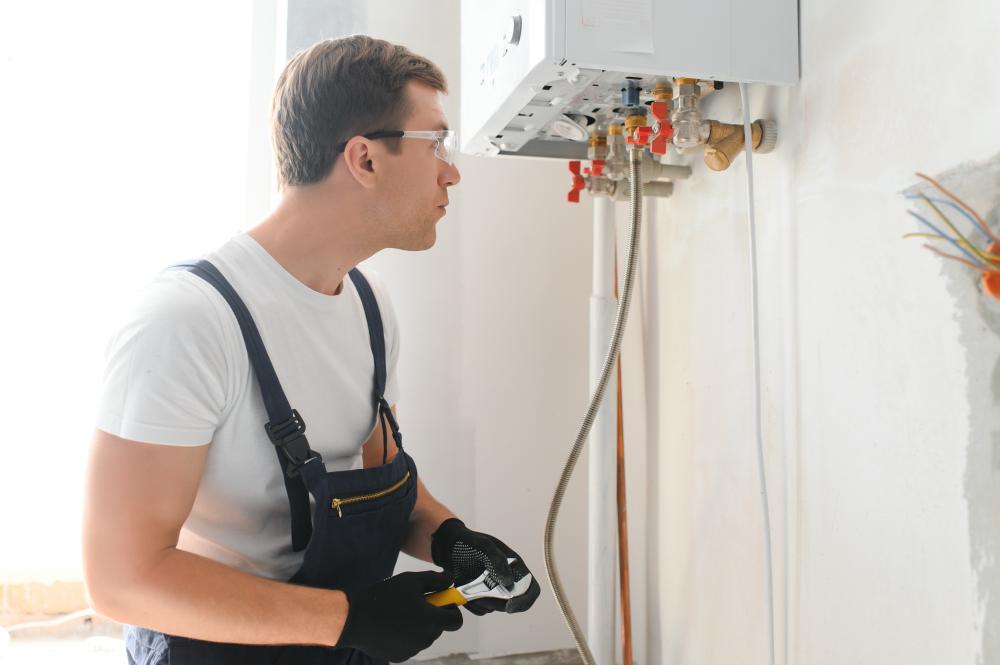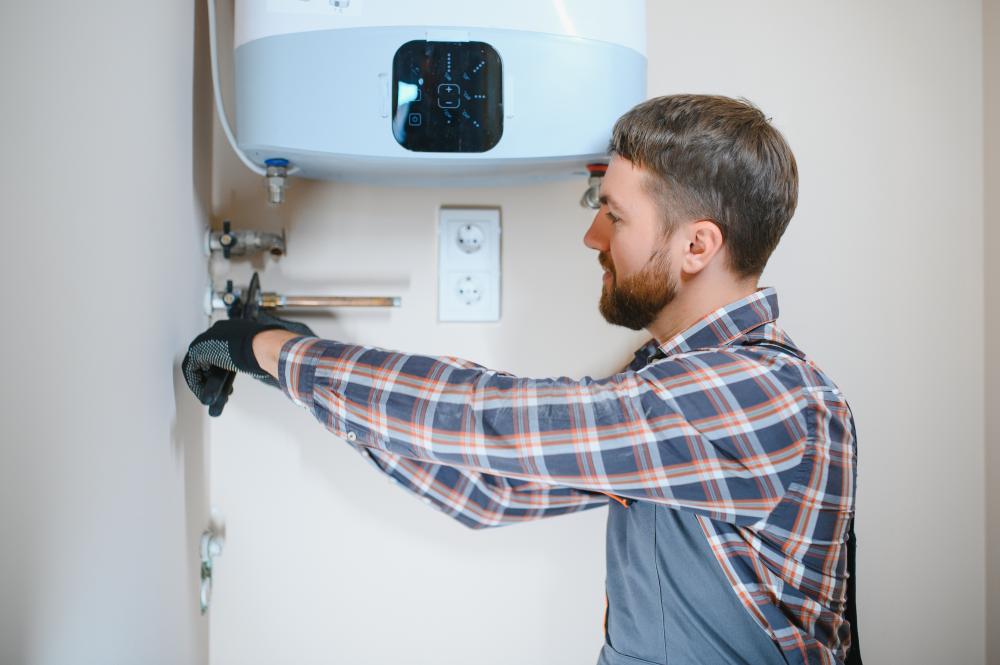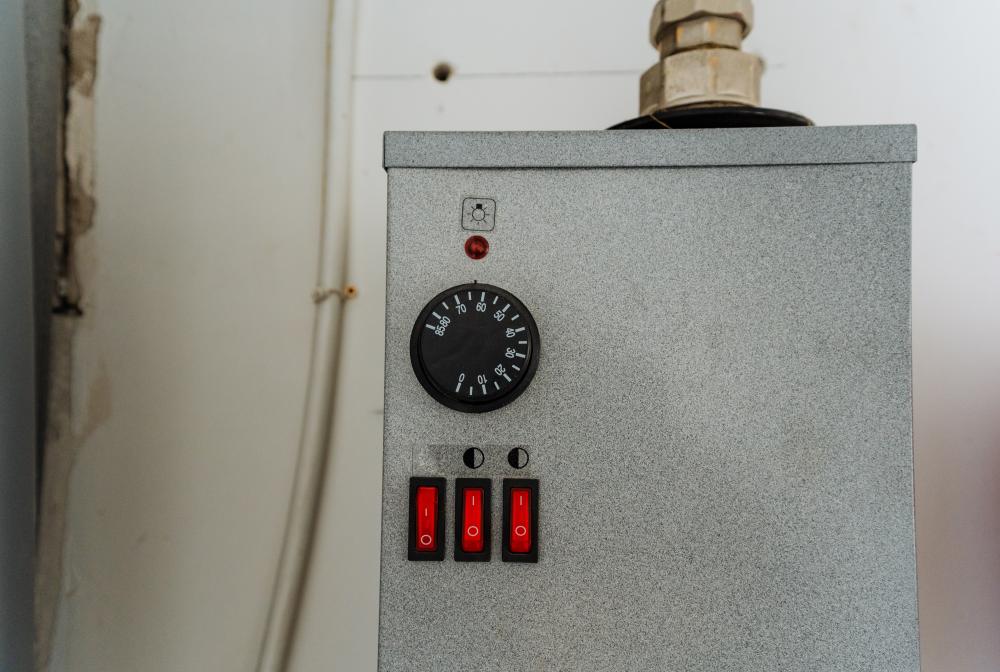Gas Water Heater Replacement

Tips for a Gas Water Heater Replacement
Gas water heaters play a pivotal role in maintaining the comfort of your home. When they start to falter, the ripple effects can be quite the inconvenience, disrupting daily routines. Whether it's a slow to heat shower or a complete lack of hot water, these hiccups make gas water heater replacement a pressing need.
Neglecting the signs of a failing water heater can be more costly in the long run. A malfunctioning water heater not only bumps up your energy bills but can potentially lead to more severe issues, such as water leakage or even natural gas leaks. Undertaking a timely gas water heater replacement can avert these risks, ensuring your home remains a safe and efficient environment.
Home Alliance understands that household disruptions are best minimized, and that's why we offer timely assessments to determine the need for gas water heater replacement. Our technicians offer quick and precise evaluations to prevent extended downtime, getting your home's hot water back on track with minimal fuss.
Signs You Need to Replace Your Gas Water Heater
Age of the Heater
A gas water heater typically has a lifespan of about 8-12 years. If your unit is around this age bracket, it's a telltale sign to consider a replacement. Aging systems not only operate less efficiently but are prone to breaking down, potentially leading to a complete loss of hot water.
Inconsistent Water Temperature
If you're experiencing fluctuating water temperatures, it might be a sign that your heater's heating elements are failing. This inconsistency indicates the need for an inspection and possibly a gas water heater replacement before the problem escalates.
Noisy Operation
The presence of unusual noises, such as banging or popping, can be a red flag for sediment build-up at the bottom of the tank. This build-up makes the heater work harder than necessary, leading to energy inefficiency and potential damage, pointing towards the need for replacement.
Leaks and Rust
Leaks around the heater or visible signs of rust indicate that the tank may be corroding. Because this issue is often irreversible, a gas water heater replacement is usually the most practical and safe solution. Transitioning to a new unit can save you from unexpected water damage and the associated repair costs.
The Replacement Process with Home Alliance
When it comes to replacing your gas water heater, partnering with a trustworthy provider like Home Alliance ensures the process is smooth and hassle-free. Our skilled team starts by providing a comprehensive assessment of your current system, evaluating whether replacement is indeed the best course of action.
Once replacement is deemed necessary, our technicians guide you in selecting the most suitable model for your home's specific needs and budget. We understand that every home is different, and our personalized service ensures you receive the ideal water heating solution for your household.
Installation is conducted by experienced professionals who prioritize efficiency and safety. Home Alliance technicians ensure that the new system is installed correctly, focusing on optimal performance and longevity. Throughout the process, we maintain open communication to keep you informed and confident in our services.
Post-installation, our commitment does not wane. We emphasize follow-up services to monitor the system's performance, giving you peace of mind that your gas water heater replacement is an investment in long-term reliability and cost efficiency.

Importance of Regular Maintenance
Ensuring the efficient performance of your water heater starts with consistent gas water heater maintenance. Many homeowners often overlook the significance of regular check-ups, which could lead to unexpected breakdowns. A well-maintained gas water heater offers not only optimal efficiency but also guarantees safety, as it reduces the risk of unexpected gas leaks. Engaging in routine maintenance can noticeably extend the lifespan of the appliance, saving you from frequent replacements.
From a personal standpoint, I've learned that addressing minor issues early on can prevent costly repairs down the road. In my own experience, a scheduled inspection highlighted a tiny leak that could have led to a significant hazard. With professional intervention, the problem was swiftly corrected, emphasizing how routine maintenance can spare you from future headaches.
Key Steps for Effective Maintenance
Visual Inspection
Start your gas water heater maintenance with a thorough visual inspection. Look for any signs of rust, corrosion, or residue around the tank and pipe connections. If your heater is making any strange noises, it's crucial to check the pilot light and burner for proper operation. A friend of mine once discovered a small rust spot on the tank during a visual check, which likely saved them from an imminent leak. Early detection can mitigate severe damage.
Flushing the Tank
Flushing the tank is an essential step in maintaining your gas water heater. Sediment build-up at the bottom of the tank can cause inefficiencies and impact the unit's functionality. By flushing the tank annually, you can ensure it operates smoothly and efficiently. In my professional experience with Home Alliance, flushing the tank often reveals sediments that could have otherwise compromised heating efficiency.
Professional Insights and Advice
While DIY maintenance can handle some aspects, professional gas water heater maintenance is crucial for more comprehensive checks. Professionals possess the expertise to identify potential hazards that might not be apparent to the untrained eye. Home Alliance, for instance, has a dedicated team of experts who specialize in thorough inspections, ensuring all components are functioning correctly. Our technicians bring extensive experience and can provide personalized advice tailored to your specific water heating setup.
It's not just about fixing current issues. Professional maintenance also includes recommendations for improvements and insights into when it might be time for an upgrade. A colleague once advised a client to upgrade their decades-old heater, leading to significant energy savings and enhanced water heating. This proactive approach, championed by Home Alliance, bridges the gap between basic upkeep and long-term efficiency.
Overall, regular gas water heater maintenance is more than a chore; it's an investment in safety, efficiency, and peace of mind. By combining DIY checks with professional insights, you ensure your water heater continues to provide consistent service, fostering a more secure and comfortable home environment.
Common Issues in Gas Water Heater Troubleshooting
Gas water heater troubleshooting often begins with understanding the most common problems that arise, from pilot light issues to thermostat malfunctions. Those who have battled a persistently extinguishing pilot light know the frustration all too well; it's a small component but crucial for the heater's operation. A faint or flickering pilot light can be caused by something as simple as a draft or as complex as a faulty thermocouple. A professional tip from our technicians at Home Alliance is to first ensure that the surrounding area is clear of any drafts that may compromise the pilot light.
Another frequent complaint in gas water heater troubleshooting is unexpected fluctuations in water temperature, which often indicate thermostat issues. Adjusting the thermostat may offer temporary relief, but if the problem persists, it might be time to replace or recalibrate the unit. As someone who once spent a winter juggling ice-cold and scalding hot showers, these irregularities can be more than just inconvenient--they can be maddening. Fortunately, Home Alliance technicians are adept at diagnosing such quirks and applying precise solutions to restore a consistent water temperature.
Diagnosis and Solutions
A crucial aspect of gas water heater troubleshooting is identifying the root cause of the problem. Listen closely for strange noises or rumblings within the tank, often signaling sediment buildup. This common issue leads to inefficiency and, if left unresolved, can shorten the lifespan of your unit. Fortunately, this can often be remedied by flushing the tank to remove accumulated sediment. Regular maintenance services from Home Alliance can keep these issues at bay by ensuring your water heater remains efficient year-round.
Another crucial component is the thermocouple, which acts as a safety device and can frequently be the culprit in a malfunctioning heater. An improperly functioning thermocouple will cut off the gas supply, resulting in a lack of efficiency. While this is usually an easy DIY fix, involving cleaning or replacing the thermocouple, for best results, consider enlisting a professional, such as the knowledgeable technicians at Home Alliance, especially if you're unfamiliar with heater internals.
Expanding on the theme of preventive care, keep an eye out for corrosion or leakage, both of which are red flags indicating deeper systemic issues. If you're noticing water pooling around the base of the heater, it could be a sign that the tank is failing. This is particularly important if the heater is older, as age can exacerbate these issues, making replacement a more viable option. Scheduling an inspection with Home Alliance can save you time and money in the long run by preventing small issues from becoming larger, more expensive problems.
Professional Maintenance
While gas water heater troubleshooting can sometimes be handled at home, there's undeniable value in professional intervention. Regular checkups not only extend the life of your unit but also enhance its efficiency, giving you that much-needed peace of mind. Home Alliance takes pride in offering comprehensive maintenance plans that cater to the unique needs of each customer, ensuring that no detail is overlooked.
Personal experiences shared by our long-term clients highlight the trust they have in our services, particularly noting the expertise and attention to detail that distinguishes Home Alliance from competitors. Our specialists are trained to not just fix evident problems but to anticipate and mitigate potential future issues. This proactive approach makes a world of difference in maintaining uninterrupted service.
Additionally, the importance of having access to expert advice cannot be overstated, especially for intricate systems like gas water heaters. Our technicians possess the knowledge to trouble-shoot efficiently, providing solutions that are not only effective but are catered to fit your specific situation. You won't be left guessing about which part should be replaced or if the problem lies elsewhere; our team provides clarity and direction.
If you're struggling with gas water heater troubleshooting, remember that professional help is only a call away. At Home Alliance, our goal is to deliver unmatched service and practical solutions that ensure you enjoy hot water when you need it--and without the struggle.

What is the average cost of a new gas water heater?
The average cost of a new gas water heater can range between $500 to $1,500, depending on various factors such as brand, size, and energy efficiency. High-efficiency models with better insulation and faster heating capabilities tend to be on the higher end of this range. It's similar to buying a car; you get what you pay for in terms of features and reliability. At Home Alliance, we often recommend considering an Energy Star-rated unit, which, although initially more expensive, can provide significant savings on energy bills over time. Have you considered the long-term savings of an energy-efficient model?
Who do I call to replace a gas water heater?
When it comes to replacing a gas water heater, calling a professional service like Home Alliance ensures the job is done safely and correctly. Our experienced technicians can manage every aspect, from removing your old unit to installing the new one, while ensuring optimal safety standards. Attempting this replacement without the right expertise can be risky due to the gas and plumbing work involved. Have you considered the benefits of having a professional handle installation for peace of mind and efficiency?
Can I replace a gas water heater by myself?
While replacing a gas water heater yourself is possible, it is generally not recommended unless you have significant plumbing and gas fitting experience. Handling gas lines can be dangerous, and improper installation could lead to leaks or carbon monoxide exposure. At Home Alliance, we emphasize safety and longevity, ensuring that installations meet all local codes and regulations. Have you thought about the potential risks versus the advantages of hiring a professional?
How often should a gas water heater be replaced?
Most gas water heaters have a lifespan of about 8 to 12 years. If your unit is within this age range, it might be time for a replacement, especially if you are experiencing inefficiencies or frequent repairs. Keeping track of your water heater's age and performance can help you prevent unexpected breakdowns. I've seen many cases where timely replacement has saved homeowners from costly emergency repairs. When was the last time you had your water heater evaluated by an expert?
How often should I perform maintenance on my gas water heater?
Regular maintenance on your gas water heater should ideally be conducted once a year. This includes flushing the tank to remove sediment, inspecting the anode rod, and checking for leaks or corrosion. Routine maintenance not only extends the life of your heater but can also prevent small issues from turning into major problems. At Home Alliance, we've observed that simple annual check-ups can lead to significant savings and efficiency gains over time. Could an annual service plan be a good fit for your maintenance needs?
Resources
- Energy.gov - The official website of the U.S. Department of Energy, providing valuable information on energy efficiency and home appliances.
- Epa.gov - The Environmental Protection Agency's website offering information on environmental issues and energy-saving tips.
- ConsumerReports.org - A trusted source for product reviews and recommendations, including water heaters and home appliances.
- ThisOldHouse.com - A reliable source for home improvement and maintenance advice, including articles on gas water heaters.
- Office of Energy Efficiency and Renewable Energy (EERE) - A branch of the U.S. Department of Energy focused on energy efficiency and renewable energy technologies.

